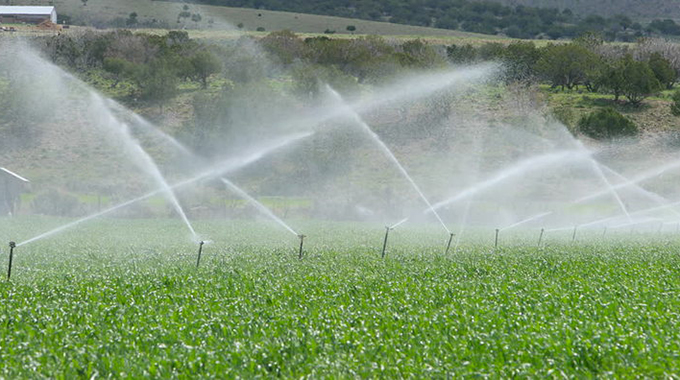
When Government undertook the decision to redistribute tracts of lands to thousands of landless black majority more than two decades ago, the resolution was premised on the need to boost productivity for local consumption and export.
It was also done in the spirit of inclusivity so that the black majority then regarded as “mere peasant” farmers could also venture into commercial farming instead of being condemned to perpetual poverty as farm labourers and to other less demeaning titles.
Despite Government’s vilification by some countries in the West at the behest of some former white commercial farmers, who condemned the whole land reform programme, describing it as political gimmick, it stood its ground for the good of its people.
Naturally, such a decision to empower the black majority through land as their birth right and source of livelihood did not come cheap.
The land reform, which was merely a bilateral issue between Zimbabwe and its former colony— Britain, became a source of contestation among several super powers, resulting in the imposition of sanctions to the country.
Looking at the bruising fight Zimbabwe had to endure for daring to stand by its liberation struggle ethos of empowering the indigenous black majority by giving them land, it then defies logic why beneficiaries of the land reform are not utilising land allocated to them.
Reports are abound of resettled farmers who are not utilising allocated land, but instead boast in pubs of being land owners, intermittently waving the offer letters in the face of imbibers just to prove that they indeed own land.
Such attitudes are albatross to the development of Zimbabwe which needs to increase its production in line with the Transitional Stabilisation Programme and Vision 2030.
We therefore welcome President Mnangagwa’s call to the beneficiaries of the land reform programme to fully utilise their farms to boost productivity for local consumption and export.
Officially opening the inaugural Zimbabwe Agricultural Show in Harare on Friday, the President said farmers must prove to be real producers than being mere “farm owners”.
“I exhort beneficiaries of the land reform to be farmers, not mere farm owners.
“The new agrarian revolution requires beneficiaries to give due attention to improving productivity across all crops.”
Such a clarion call from the highest office in the land, requires farmers to put their hands on the deck and work on increasing production on the land allocated to them.
In the midst of these beneficiaries, there are several individuals who had no real use for the land and were neither farmers, but applied for land so that they would later bequeath the hectarage to their tribesmen. We would encourage such individuals and those already under-performing to surrender the land for redistribution to more deserving people.
It would also be prudent for those farmers incapacitated in terms of production and knowledge to request for right-sizing based on capability, resources and region.
Such an exercise would be meticulously done with the involvement of Ministry of Lands, Agriculture, Water, Climate and Rural Settlement.
It is within the same realm that we also call on service providers like Agritex officers to work on ensuring that farming activities are going well among land beneficiaries to boost productivity.
Currently, the country boasts of numerous extension service providers that include, but not limited to public-funded institutions, non-governmental organisations commodity processors, farmers’ associations, and private agrochemical input suppliers, who claim to aid farming in Zimbabwe.
Such pluralism in agricultural extension allows farmers to choose among alternatives because the various extension providers offer different services, which can boost productivity once implemented holistically.
However, the levels of pluralism and uncoordinated extension services at the grassroots level are also contributing to low outputs and confusion, at farmers’ expense, a development which does not augur well with the country’s vision of retaining its status of being the bread basket of the region.
The extension providers would also need to encourage their farmers to use modern technology during planting cropping, harvesting and post harvesting to ensure maximum production.
In essence, President’s Mnangagwa’s plea for optimisation of agricultural output, should not be lost in translation, but it is an encompassing call for everyone who is pushing the agricultural revolution in Zimbabwe to ensure increased production in farming.
